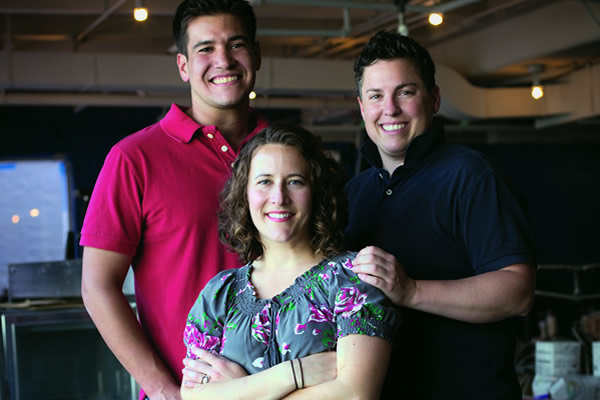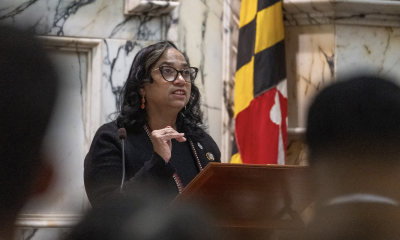a&e features
Bold brews
Activists-turned-entrepreneurs open brewery in Silver Spring
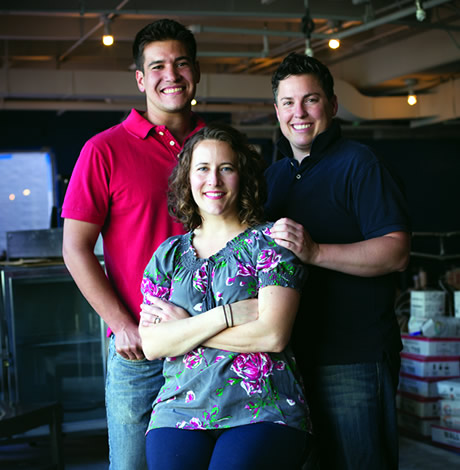
Julie Verratti and Emily Bruno are not professional commercial beer brewers. But for the lesbian couple, opening Denizens Brewing Co., geared toward a younger, diverse generation of craft beer aficionados, is just the latest endeavor in a string of adventures.
Denizens, a term meaning a local or regular customer, is a fitting term for the new brewery, nestled among new high-rise apartment buildings on East-West Highway, a 10-minute walk from the Silver Spring Metro stop, which former same-sex marriage activists Verratti and Bruno opened this month with Jeff Ramirez, whose sister is married to Emily’s brother giving the operation a family feel. Ramirez, who’s been developing and fine-tuning beer recipes for his entire career, came up with the flavors.
The owners of the 200-seat brewery and beer garden, about 3,000 square feet, plan to brew five core styles and five seasonal styles out of its basement. A popular gay-owned food truck, BBQ Bus, will open a brick-and-mortar location inside the brewery this summer.
“Have I ever done something this big? No,” says Verratti, who’s had a series of careers in everything from political activism to personal training. “It’s the first time — the first time for all of us.”
Che and Tadd Ruddell-Tabisola, who own BBQ Bus, knew the Denizens owners from their time as LGBT activists. Going into business together seemed like the perfect next step, building upon an old friendship.
“It was a match made in heaven,” Che says. “I think Julie and Emily are great. Their concept and their approach is really thoughtful. There’s a lot of quality behind what they’re doing.”
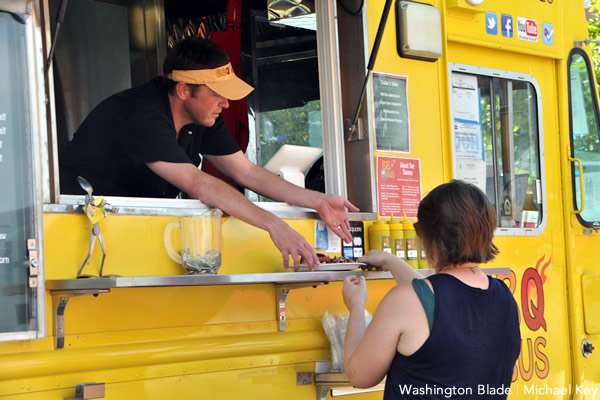
BBQ Bus (Washington Blade photo by Michael Key)
Che and his husband always wanted to open a physical location ever since their first day on the road in April 2011. But the opportunity didn’t immediately present itself.
“We got turned down for two loans and a few credit cards when we were trying to get this business going,” he says. “Nobody was lending money to a startup [during the recession], let alone a restaurant. The food truck really was a way to get into this business.”
Today, the food truck is well known across the D.C. area, an asset upon which Denizens, located at 1115 East-West Highway in Silver Spring (denizensbrewingco.com), hopes to capitalize.
“Everyone wants to eat when they’re drinking beer,” says Taylor Barnes, the brewery’s director of marketing and events. “Che and Tadd loved the pairing of beer and barbecue, and so did we. It’s a new model — two businesses coexisting in the same space. So it was really important for us that we just got along as people first, and second as business partners.”
“They’re fun, they’re super welcoming, and they love diversity just as much as we do,” Verratti says. “I love the fact that if you combine the ownership structure between the brewery and BBQ Bus, four out of the five owners are gay and gay married.”
A long journey
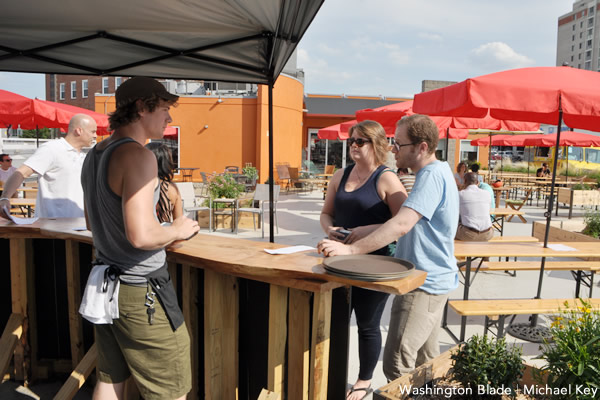
Denizens (Washington Blade photo by Michael Key)
Craft beer fans tend to be well educated, city-dwelling political progressives in their 20s and 30s, making the District and the surrounding metropolitan area an optimal place to open a brewery. But as the East Coast craft beer scene continues to boom, Barnes says craft beer is often marketed toward a “narrow slice of America.”
“One of the reasons we wanted to start Denizens Brewing Co. is that craft beer is for everyone,” she says.
But plans to open the business were stalled in part because of the restrictive Defense of Marriage Act, leading Verratti and Bruno to draw upon their roots as activists.
“Emily and I met and started dating as political organizers,” Verratti says, referring to their time in Boston working on the 2004 presidential campaign and later, on the canvass program at MassEquality, an organization that helped secure and defend same-sex marriage in Massachusetts, the first state where it became legal.
“It was a pretty unbelievable time period,” she says, reminiscing on what she jokingly calls her “past life as a professional gay.”
“Every day, you could feel the weight of the country on you. We were being attacked constantly from the right, and we did a full-scale ground war. We knocked on hundreds of thousands of doors. We created the model for how to win these types of battles across the country.”
Veratti, born and raised in Silver Spring, married Bruno in California during the short window before Proposition 8 was temporarily struck down, and moved back home with her wife to earn a degree from George Washington University Law School. Both women had toyed with the idea of opening a business, but it was their penchant for political activism and Verratti’s fluency in legal jargon that paved the way for the opening of Denizens.
The couple encountered their fair share of roadblocks along the way, starting with the Defense of Marriage Act, which, until it was struck down last June, prohibited the couple from enjoying mutual financial benefits even though they’ve been legally married since 2008.
“We had been making steady progress on our plans to open the brewery, but the striking down of DOMA enabled us to move forward more quickly because I knew I would have full access to Julie’s benefits as a federal employee during the unstable transition to becoming an entrepreneur,” Bruno says.
Opening a business together, Bruno says, wouldn’t have been possible if the law was still on the books.
Changing the law
The fall of DOMA allowed Bruno to quit her job and devote full attention to opening the brewery. But that wasn’t the last hurdle to overcome. Restrictive laws in Silver Spring made opening a brewery nearly impossible, gay or straight.
“One of the reasons why there hadn’t been more breweries opening up, specifically in Montgomery County, is that the laws had been archaic,” Verratti says, pointing to laws prohibiting breweries from offering take-out service and forcing them to sell pints to the county as a middleman instead of directly to bars and customers.
“We looked at that and thought, ‘Why don’t we just change the laws?’ I honestly think because of our political organizing background, it gave us the savvy to figure out how to do that.”
After testifying before the Montgomery County delegation, the couple was successful in making the county’s laws more business friendly. Denizens bills itself as a “craft brewery serving European-style lagers, American-style ales, Belgian-inspired beers, sour beers and barrel-aged beers to both the craft beer aficionado and those new to high-quality brews.”
For the first round of brewing, they contracted with Beltway Brewing Company but by September plan to brew everything in house with their own 15-barrel system. They decline to say how much they invested in the business but say they’ve been planning and developing since December 2012. Both Verratti and Bruno love beer and while Verratti has done some home brewing, they say Ramirez is the expert.
Brett Robison, the bar manager at Republic, a local bar that buys beer from Denizens, predicts the change will improve conditions for Denizens and future breweries.
“What’s going to happen because of this law change is overnight, Montgomery County is going to go from being one of the least favorable places to open any kind of alcohol business to being one of the most favorable places,” Robison says. “This law change now creates incentives for entrepreneurs.”
Although the doors have only been open for a few weeks, the brewery, which Barnes calls a local “job creator,” already has a diverse group of regulars.
“Everyone who works here is really gay friendly,” says Barnes, who is straight, pointing out that the nearly 40-person staff mostly identifies as LGBT. “I’m proud to be working at a lesbian-owned establishment. Because we are all diverse, it is more welcoming to everyone.”
“This community has really embraced us, and we’re so grateful for it,” Verratti says. “There’s been a strong contingent of the LGBT community that has come out and supported us. That makes me feel really happy and proud.”
a&e features
Queer highlights of the 2026 Critics Choice Awards: Aunt Gladys, that ‘Heated Rivalry’ shoutout and more
Amy Madigan’s win in the supporting actress category puts her in serious contention to win the Oscar for ‘Weapons’
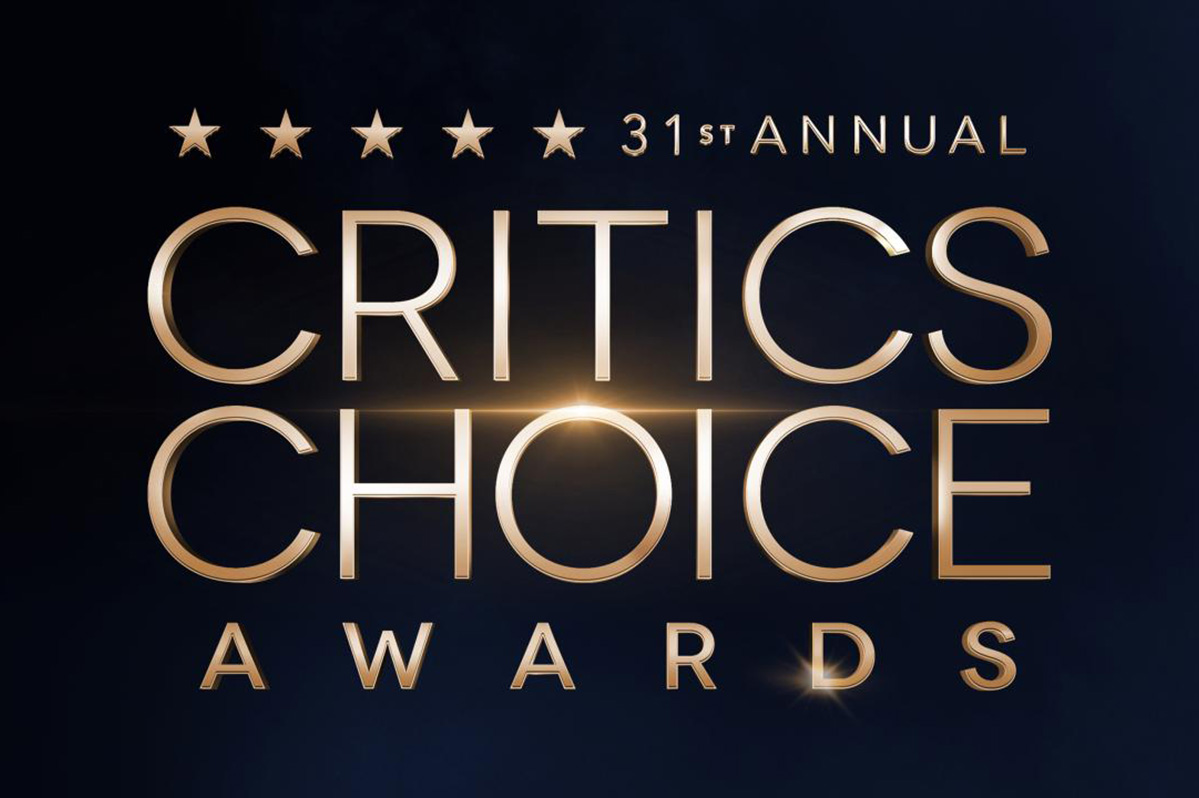
From Chelsea Handler shouting out Heated Rivalry in her opening monologue to Amy Madigan proving that horror performances can (and should) be taken seriously, the Critics Choice Awards provided plenty of iconic moments for queer movie fans to celebrate on the long road to Oscar night.
Handler kicked off the ceremony by recapping the biggest moments in pop culture last year, from Wicked: For Good to Sinners. She also made room to joke about the surprise hit TV sensation on everyone’s minds: “Shoutout to Heated Rivalry. Everyone loves it! Gay men love it, women love it, straight men who say they aren’t gay but work out at Equinox love it!”
The back-to-back wins for Jacob Elordi in Frankenstein and Amy Madigan in Weapons are notable, given the horror bias that awards voters typically have. Aunt Gladys instantly became a pop culture phenomenon within the LGBTQ+ community when Zach Cregger’s hit horror comedy released in August, but the thought that Madigan could be a serious awards contender for such a fun, out-there performance seemed improbable to most months ago. Now, considering the sheer amount of critics’ attention she’s received over the past month, there’s no denying she’s in the running for the Oscar.
“I really wasn’t expecting all of this because I thought people would like the movie, and I thought people would dig Gladys, but you love Gladys! I mean, it’s crazy,” Madigan said during her acceptance speech. “I get [sent] makeup tutorials and paintings. I even got one weird thing about how she’s a sex icon also, which I didn’t go too deep into that one.”
Over on the TV side, Rhea Seehorn won in the incredibly competitive best actress in a drama series category for her acclaimed performance as Carol in Pluribus, beating out the likes of Emmy winner Britt Lower for Severance, Carrie Coon for The White Lotus, and Bella Ramsey for The Last of Us. Pluribus, which was created by Breaking Bad’s showrunner Vince Gilligan, has been celebrated by audiences for its rich exploration of queer trauma and conversion therapy.
Jean Smart was Hack’s only win of the night, as Hannah Einbinder couldn’t repeat her Emmy victory in the supporting actress in a comedy series category against Janelle James, who nabbed a trophy for Abbott Elementary. Hacks lost the best comedy series award to The Studio, as it did at the Emmys in September. And in the limited series category, Erin Doherty repeated her Emmy success in supporting actress, joining in yet another Adolescence awards sweep.
As Oscar fans speculate on what these Critics Choice wins mean for future ceremonies, we have next week’s Golden Globes ceremony to look forward to on Jan. 11.
a&e features
Looking back at the 10 biggest A&E stories of 2025
‘Wicked,’ Lady Gaga’s new era, ‘Sexy’ Bailey and more
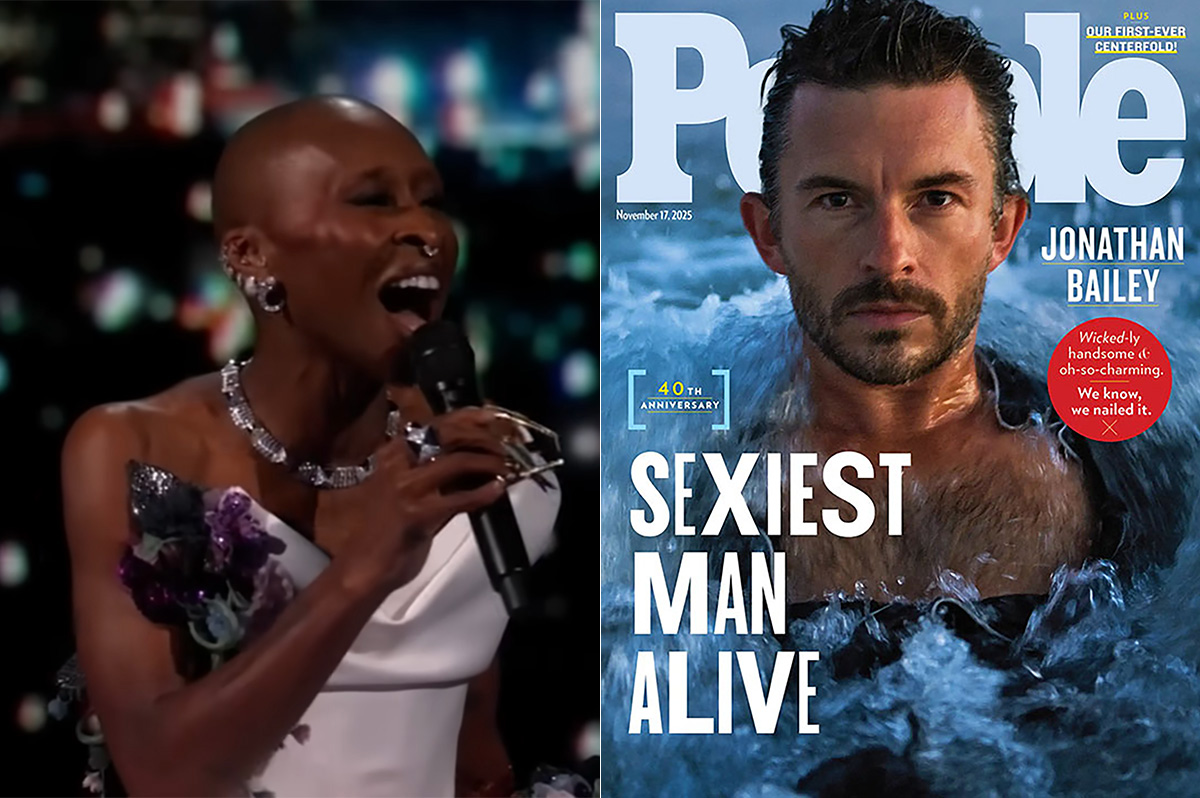
Although 2025 was a year marked by countless attacks on trans rights and political setbacks, the year also saw brilliant queer artists continuing to create art. From Cannes and Sundance Award winners now vying for Oscar consideration to pop icons entering new stages of their careers, queer people persevered to tell their stories through different media.
With the state of the world so uncertain, perhaps there’s no more vital time to celebrate our wins, as seen through some of this year’s top pop culture moments. While there’s no collection of 10 stories that fully encompass “the most important” news, here are some events that got the gays going:
10. ‘Mysterious Gaze of the Flamingo’ wins big at Cannes
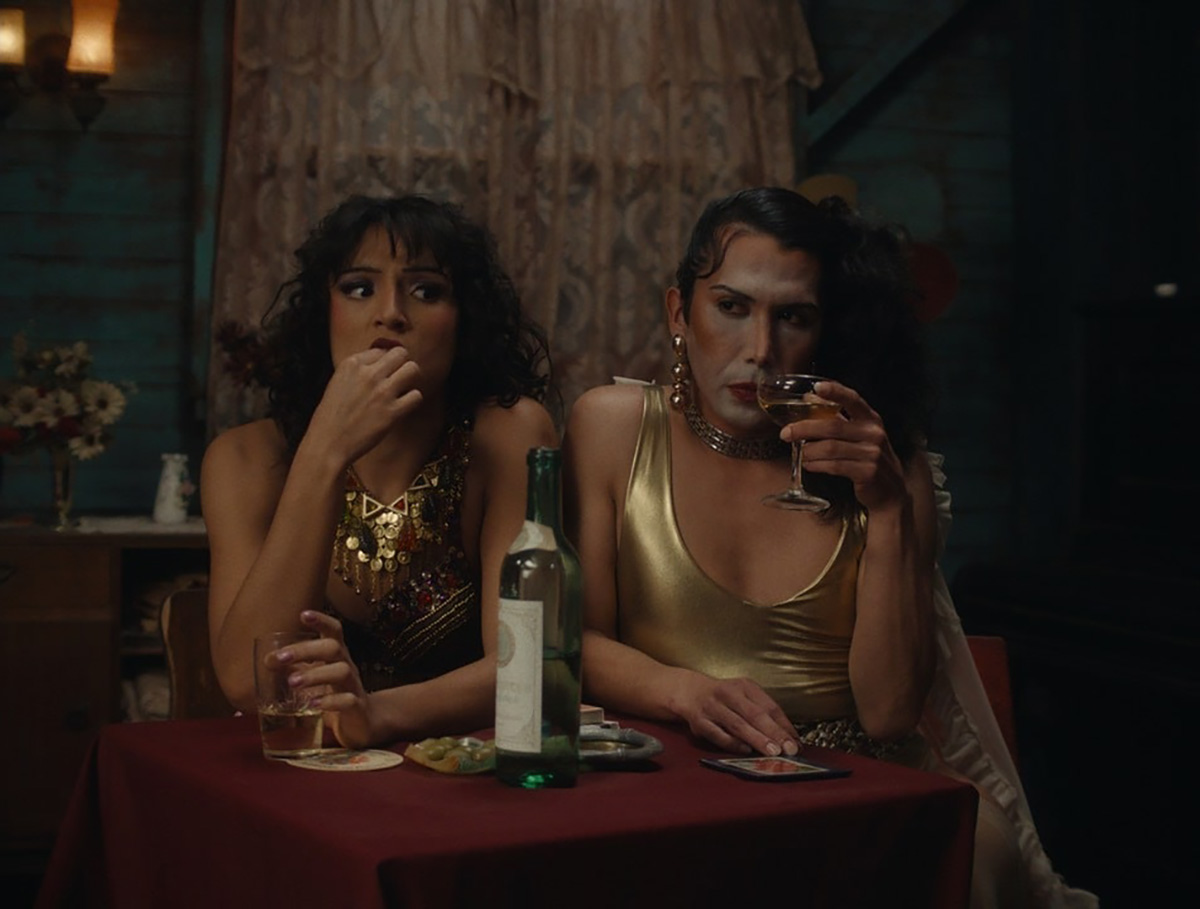
The Cannes Film Festival has become a crucial start for films hoping to make their way to the Oscars, and first-time director Diego Céspedes won the top Un Certain Regard prize for his intimate western “The Mysterious Gaze of the Flamingo.” The film is set in the ‘80s and is intended as an allegory for the AIDS epidemic. Seeing a film that unpacks vital queer history win one of the most coveted awards at Cannes has been a huge point of pride in the independent filmmaking community.
Since the film bowed at Cannes, it has been selected as Chile’s Oscar entry in the Best International Feature race. Speaking with The Blade during the film’s AFI Fest run in October, Céspedes said: At first, I was kind of scared to have this campaign position in the times that we’re living [in] here. But at the same time, I think the Oscars mean a huge platform — a huge platform for art and politics.”
9. ‘The Last of Us’ returns for an even gayer season 2
While the first season of The Last of Us gave us one of TV’s most heartbreaking queer love stories in the episode “Long, Long Time,” Season 2 doubled down on its commitment to queer storytelling with the blossoming relationship between Ellie (Bella Ramsey) and Dina (Isabela Merced). The show expanded on the pair’s relationship in the original video game, making it perhaps the central dynamic to the entire season. That unfortunately came with more homophobic backlash on the internet, but those who checked out all the episodes saw a tender relationship form amid the show’s post-apocalyptic, often violent backdrop. For their performance, Ramsey was once again nominated for an Emmy, but Merced deserved just as much awards attention.
8. ‘Emilia Pérez’ sparks controversy
Jacques Audiard’s genre-bending trans musical “Emilia Pérez” proved to be an awards season juggernaut this time last year, winning the Golden Globe for Best Musical/Comedy. But when the lead star Karla Sofia Gascón’s racist, sexist, and homophobic old tweets resurfaced, the film’s Oscar campaign became a tough sell, especially after Netflix had tried so hard to sell Emilia Pérez as the “progressive” film to vote for. Mind you, the film had already received significant backlash from LGBTQ+ audiences and the Mexican community for its stereotypical and reductive portrayals, but the Gascón controversy made what was originally just social media backlash impossible to ignore. The only person who seemed to come out of the whole debacle unscathed was Zoe Saldaña, who won the Oscar for Best Supporting Actress over Ariana Grande.
7. ‘Sorry, Baby’ establishes Eva Victor as major talent
Back in January at the Sundance Film Festival, Eva Victor (known by many for her brand of sketch comedy) premiered their directorial debut “Sorry, Baby” to rave reviews, even winning the Waldo Salt Screening Award. Victor shadowed Jane Schoenbrun on the set of “I Saw the TV Glow,” and seeing Victor come into their own and establish such a strong voice immediately made them one of independent cinema’s most exciting new voices. A memorable scene in the film sees the main character, Agnes (played by Victor), struggling to check a box for male or female, just one example of how naturally queerness is woven into the fabric of the story.
Most recently, Victor was nominated for a Golden Globe for her performance in the film, and she’s represented in a category alongside Jennifer Lawrence (“Die My Love”), Jessie Buckley (“Hamnet”), Julia Roberts (“After the Hunt”), Renate Reinsve (“Sentimental Value”) and Tessa Thompson (“Hedda”). The film also received four Independent Spirit Award nominations overall.
6. Paul Reubens comes out in posthumous doc
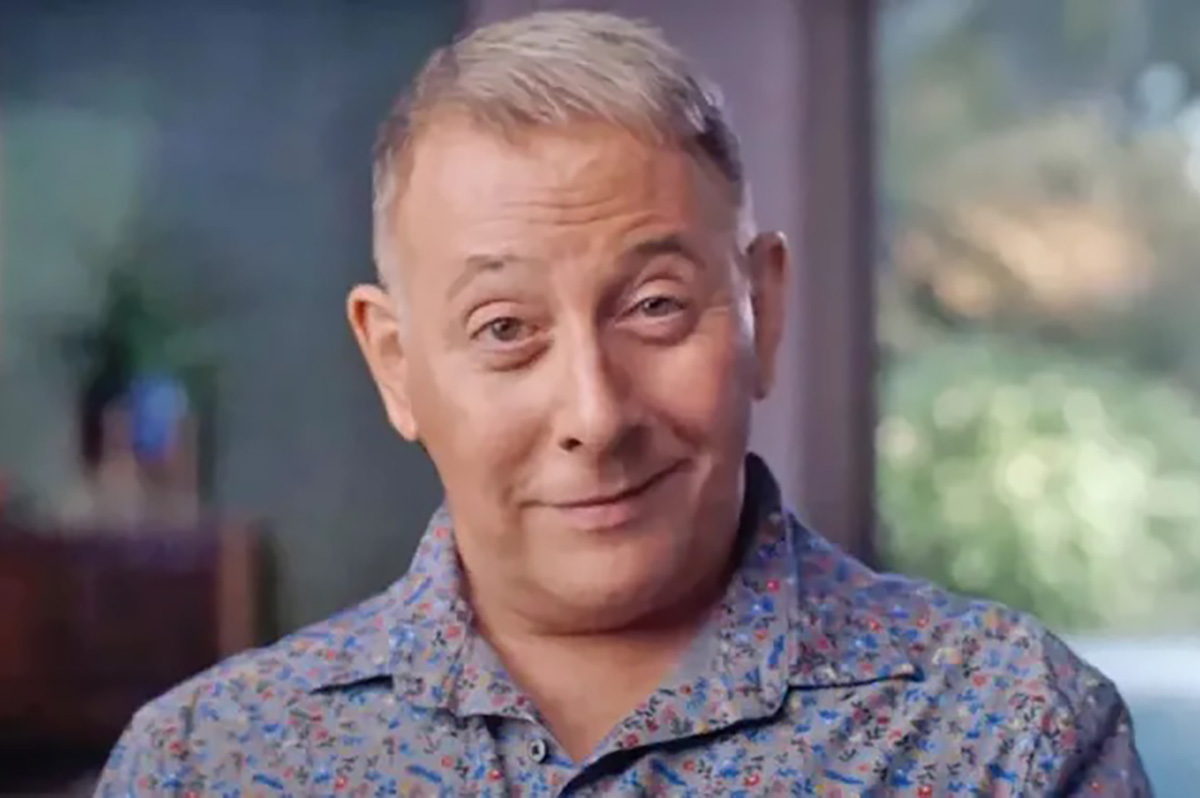
While Paul Reubens never publicly came out as gay before passing away in 2023, the two-part documentary “Pee-wee as Himself” premiered back in May on HBO Max, giving the legendary comedian a chance to posthumously open up to the world. Directed by Matt Wolf, the documentary explores how Reubens found his alter ego Pee-Wee Herman and why he kept his private life private.
The documentary won an Emmy in the Outstanding Documentary or Nonfiction Special category and remains one of the most critically acclaimed titles of the year with a 100% Rotten Tomatoes score. Also worth noting, the National Geographic documentary Sally told the posthumous coming out story of Sally Ride through the help of her long-time partner, Tam O’Shaughnessy.
5. Lady Gaga releases ‘Mayhem’
Lady Gaga entered a new phase of her musical career with the release of Mayhem, her seventh album to date. From the frenzy-inducing pop hit Abracadabra to the memorable Bruno Mars duet featured on “Die With a Smile,” seeing Gaga return to her roots and make an album for the most die-hard of fans was especially rewarding after the underwhelming film releases of “House of Gucci” and “Joker: Folie à Deux.” Gaga has been touring with The Mayhem Ball since July, her first arena tour since 2018. She even extended her tour into 2026 with more North American dates, so the party isn’t stopping anytime soon. And Gaga is even set to make an appearance next May in “The Devil Wears Prada 2.”
4. Cynthia Erivo, Ariana Grande perform at the Oscars
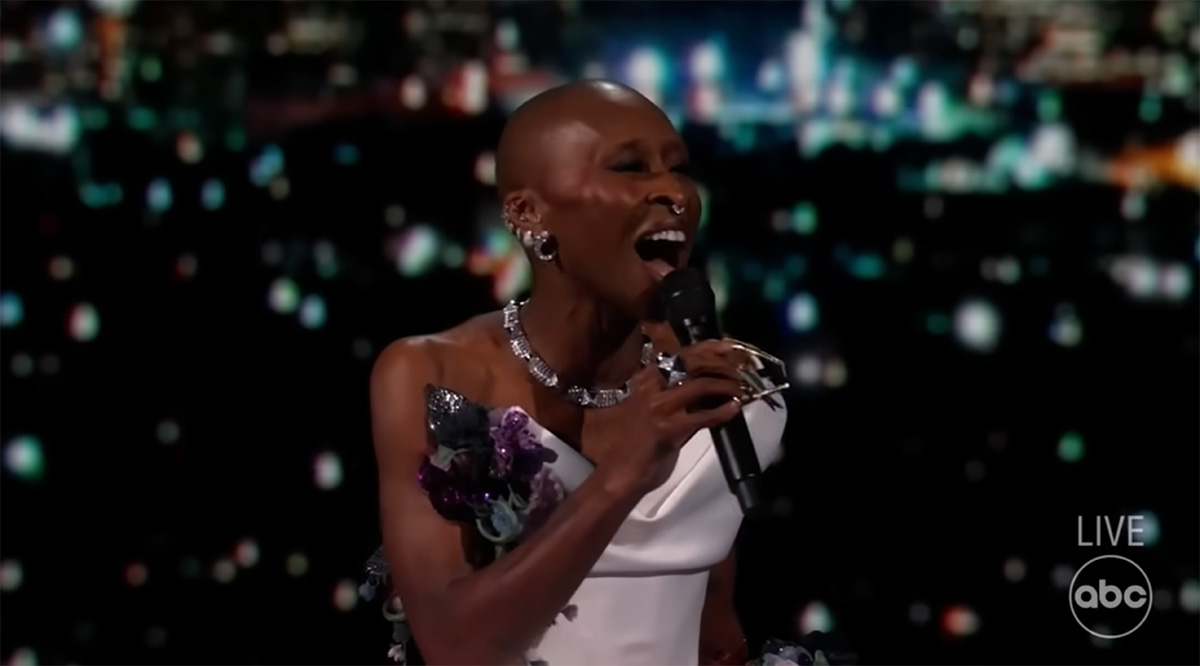
While “Wicked: For Good” didn’t quite reach the heights of the first film, we will forever have Cynthia Erivo and Ariana Grande’s breathtaking live performance that opened the 97th Academy Awards. The pair sang a rendition of “Over the Rainbow,” “Home,” and “Defying Gravity,” paying proper homage to the original 1939 “Wizard of Oz.” Even non-Wicked fans can’t deny how magical and brilliantly staged this performance was. With both Erivo and Grande up for acting Oscars last year, they’re hoping to repeat success and make history with consecutive nominations. Either way, let’s hope there’s another live performance in the making, especially with two new original songs (The Girl in the Bubble and No Place Like Home) in the mix.
3. Indya Moore speaks out against Ryan Murphy
Indya Moore has consistently used social media as a platform for activism, and in September, posted a 30-minute Instagram live speaking out against “Pose” co-creator Ryan Murphy. Moore claimed that Murphy wasn’t being a true activist for trans people. “Ryan Murphy, we need you to do more. You need to address the racism, the violence, and the targeting of people on your productions, Ryan Murphy. You do need to make sure trans people are paid equally. Yes, Janet did the right thing,” Moore said. Murphy was also back in the headlines this year for the critically panned “All’s Fair” and the controversial “Monster: The Ed Gein Story” starring Laurie Metcalf and Charlie Hunnam.
2. Cole Escola wins Tony for Best Leading Actor
Few pop culture moments this year brought us together more than Cole Escola winning a Tony award for “Oh, Mary!” the Broadway show they created, wrote and starred in (we love a triple threat!) Escola made history by becoming the first nonbinary person to win a Tony in the leading actor category, and seeing them excitedly rush to the stage wearing a Bernadette Peters-inspired gown instantly became a viral social media moment.
The cherry on top of Escola’s major moment is the recent news that they are writing a Miss Piggy movie with Jennifer Lawrence and Emma Stone producing — news that also broke the internet for the better. We cannot wait!
1. Jonathan Bailey makes gay history as ‘Sexiest Man Alive’
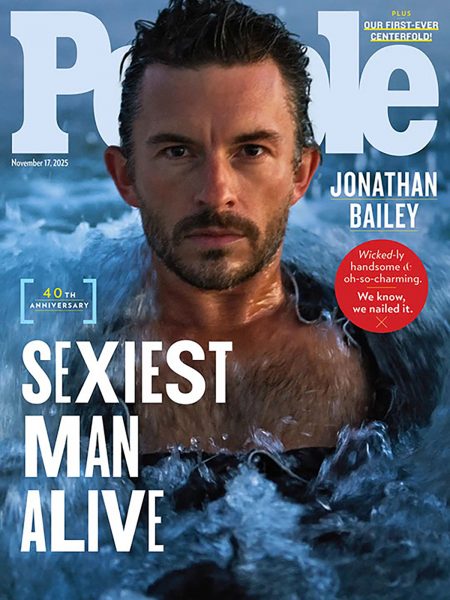
The same year as his on-screen roles in blockbusters “Jurassic World Rebirth” and “Wicked: For Good,” Jonathan Bailey made history as the first openly gay man to be named People magazine’s “Sexiest Man Alive.” The fact that it took 40 years for an openly gay man to earn the title is a signifier of how far we still have to go with queer representation, and seeing Bailey celebrated is just one small step in the right direction.
“There’s so many people that want to do brilliant stuff who feel like they can’t,” he told PEOPLE, “and I know the LGBT sector is under immense threat at the moment. So it’s been amazing to meet people who have the expertise and see potential that I could have only dreamed of.” In 2024, Bailey founded the charity titled The Shameless Fund, which raises money for LGBTQ+ organizations.
a&e features
Your guide to D.C.’s queer New Year’s Eve parties
Ring in 2026 with drag, leather, Champagne, and more
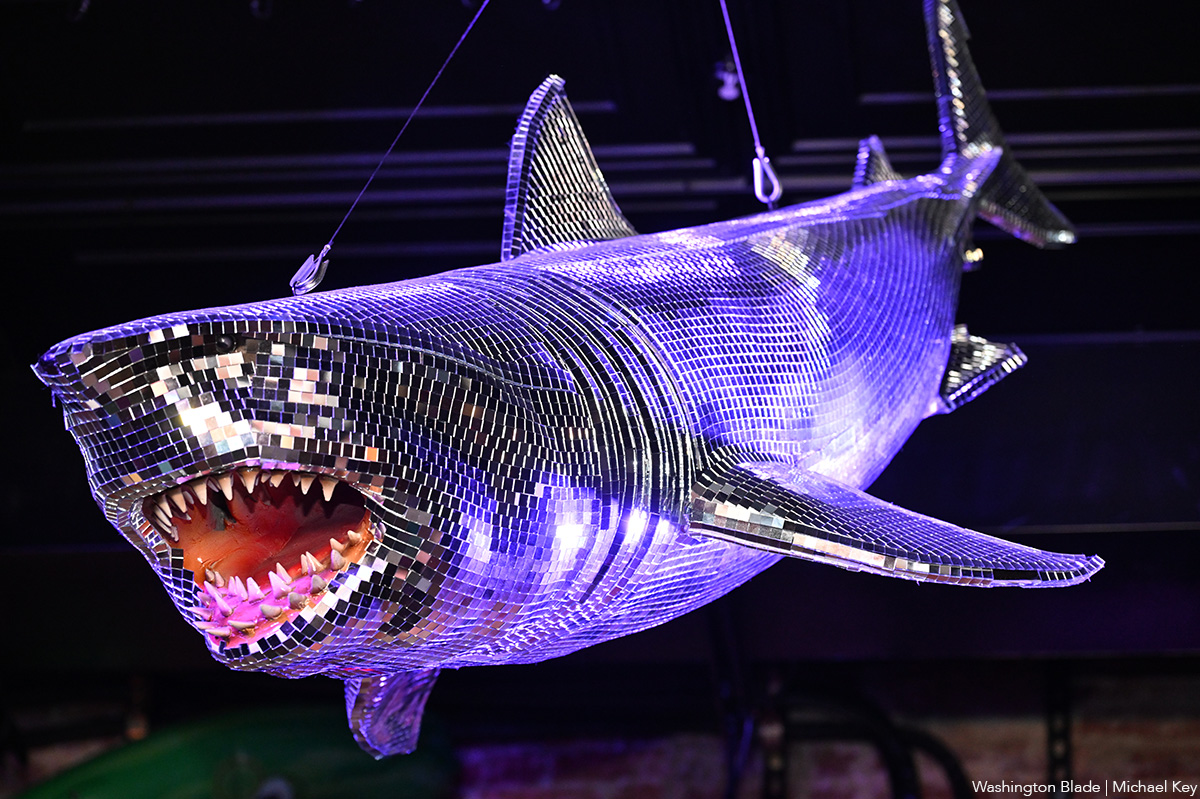
With Christmas in the rear view mirror, we can turn our attention to ringing in a much-anticipated New Year with a slew of local LGBTQ parties. Here’s what’s on tap.
Pitchers
This spacious Adams Morgan bar is hosting the “Pitchers’ Perfect New Year’s Eve.” There will be a midnight Champagne toast, the ball drop on the big screens, and no cover, all night long. The bar doesn’t close until 4 a.m., and the kitchen will be open late (though not until close). All five floors will be open for the party, and party favors are promised.
Trade
D.C.’s hottest bar/club combo is leaning into the Shark motif with its NYE party, “Feeding Frenzy.” The party is a “glitterati-infused Naughty-cal New Year’s Even in the Shark Tank, where the boats are churning and the sharks are circling.” Trade also boasts no cover charge, with doors opening at 5 p.m. and the aforementioned Shark Tank opening at 9 p.m.. Four DJs will be spread across the two spaces; midnight hostess is played by Vagenesis and the two sea sirens sensuously calling are Anathema and Justin Williams.
Number Nine
While Trade will have two DJs as part of one party, Number Nine will host two separate parties, one on each floor. The first floor is classic Number Nine, a more casual-style event with the countdown on TVs and a Champagne midnight toast. There will be no cover and doors open at 5 p.m. Upstairs will be hosted by Capital Sapphics for its second annual NYE gathering. Tickets (about $50) include a midnight Champagne toast, curated drink menu, sapphic DJ set by Rijak, and tarot readings by Yooji.
Crush
Crush will kick off NYE with a free drag bingo at 8 p.m. for the early birds. Post-bingo, there will be a cover for the rest of the evening, featuring two DJs. The cover ($20 limited pre-sale that includes line skip until 11 p.m.; $25 at the door after 9 p.m.) includes one free N/A or Crush, a Champagne toast, and party favors (“the legal kind”). More details on Eventbrite.
Bunker
This subterranean lair is hosting a NYE party entitled “Frosted & Fur: Aspen After Dark New Year’s Eve Celebration.” Arriety from Rupaul Season 15 is set to host, with International DJ Alex Lo. Doors open at 9 p.m. and close at 3 p.m.; there is a midnight Champagne toast. Cover is $25, plus an optional $99 all-you-can-drink package.
District Eagle
This leather-focused bar is hosting “Bulge” for its NYE party. Each District Eagle floor will have its own music and vibe. Doors run from 7 p.m.-3 a.m. and cover is $15. There will be a Champagne toast at midnight, as well as drink specials during the event.
Kiki, Shakiki
Kiki and its new sister bar program Shakiki (in the old Shakers space) will have the same type of party on New Year’s Eve. Both bars open their doors at 5 p.m. and stay open until closing time. Both will offer a Champagne toast at midnight. At Kiki, DJ Vodkatrina will play; at Shakiki, it’ll be DJ Alex Love. Kiki keeps the party going on New Year’s Day, opening at 2 p.m., to celebrate Kiki’s fourth anniversary. There will be a drag show at 6 p.m. and an early 2000s dance party 4-8 p.m.
Spark
This bar and its new menu of alcoholic and twin N/A drinks will host a NYE party with music by DJ Emerald Fox. Given this menu, there will be a complimentary toast at midnight, guests can choose either sparkling wine with or without alcohol. No cover, but Spark is also offering optional wristbands at the door for $35 open bar 11 p.m.-1 a.m. (mid-shelf liquor & all NA drinks).
-

 Photos5 days ago
Photos5 days agoThe year in photos
-

 Sponsored3 days ago
Sponsored3 days agoSafer Ways to Pay for Online Performances and Queer Events
-

 District of Columbia3 days ago
District of Columbia3 days agoTwo pioneering gay journalists to speak at Thursday event
-

 a&e features3 days ago
a&e features3 days agoQueer highlights of the 2026 Critics Choice Awards: Aunt Gladys, that ‘Heated Rivalry’ shoutout and more

